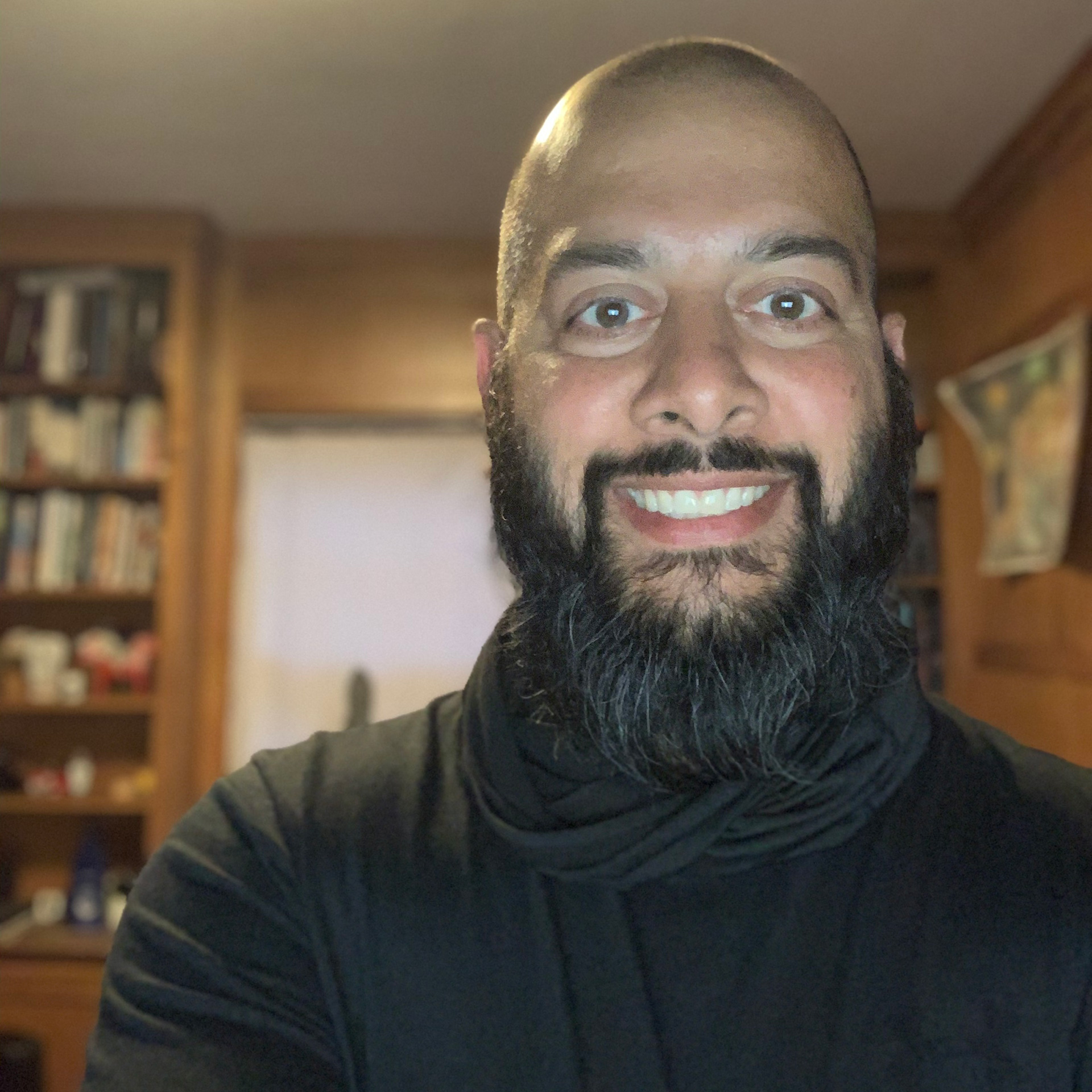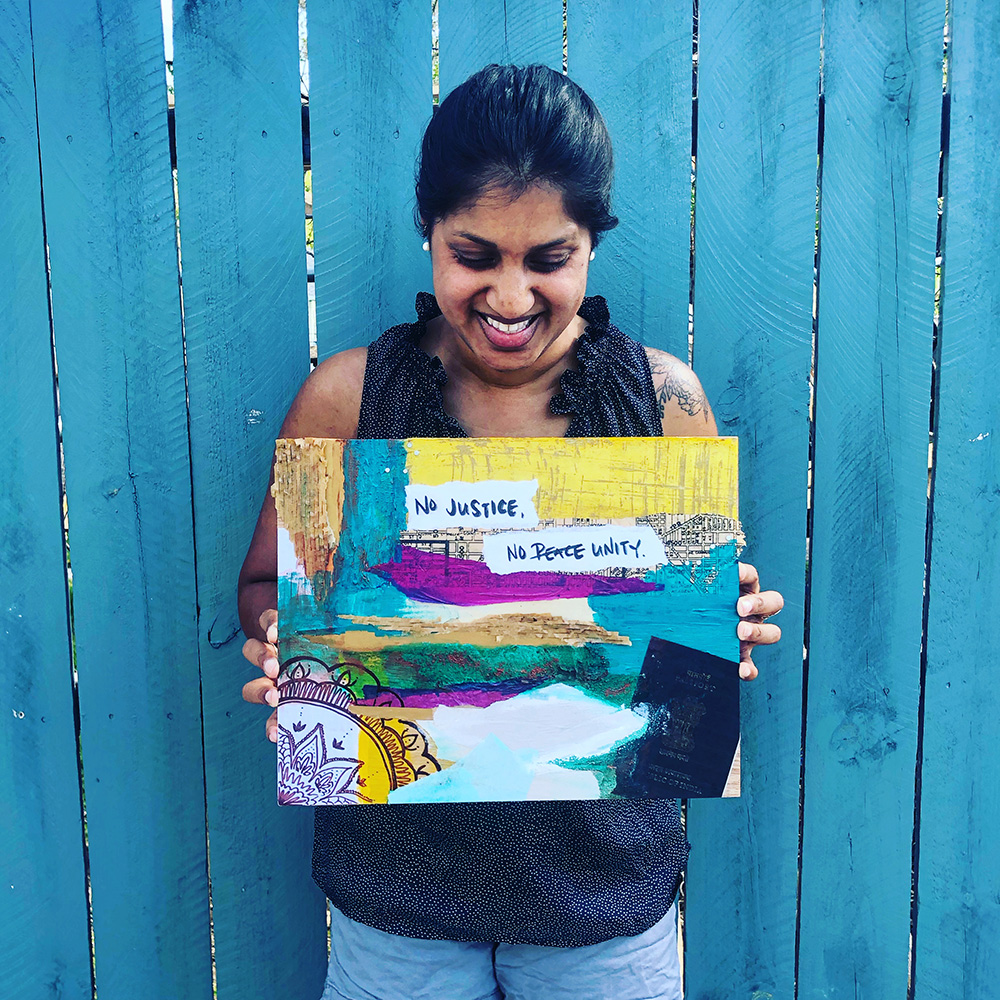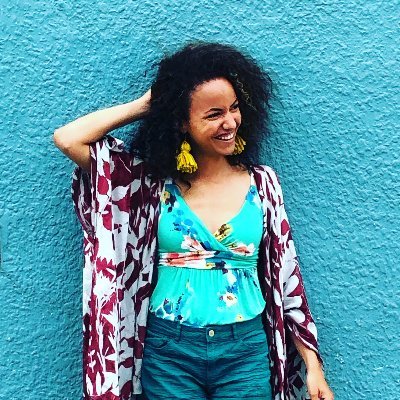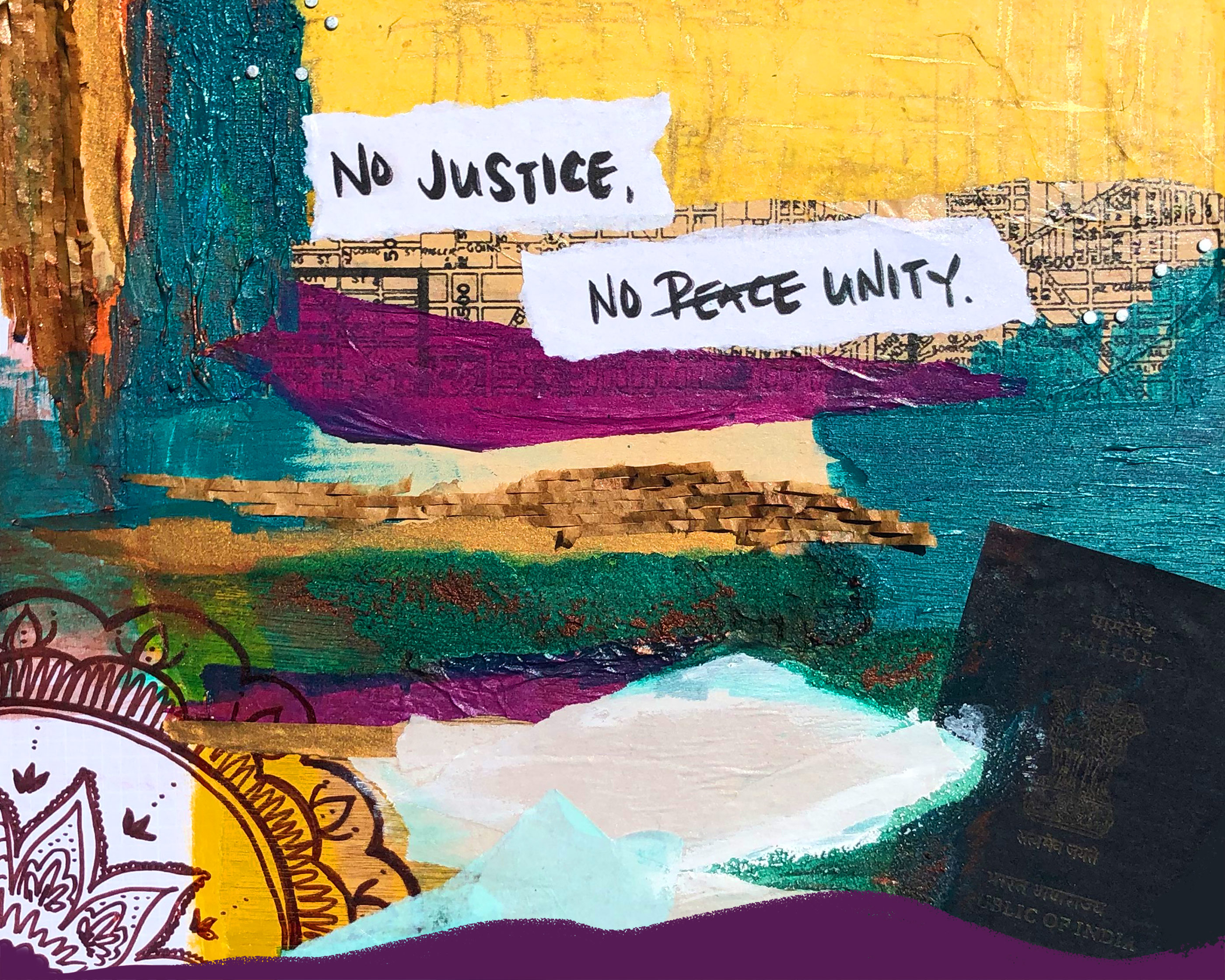
No Justice. No Peace Unity.
STORY BY Neeraj Mehta ART BY Ruthie Johnson
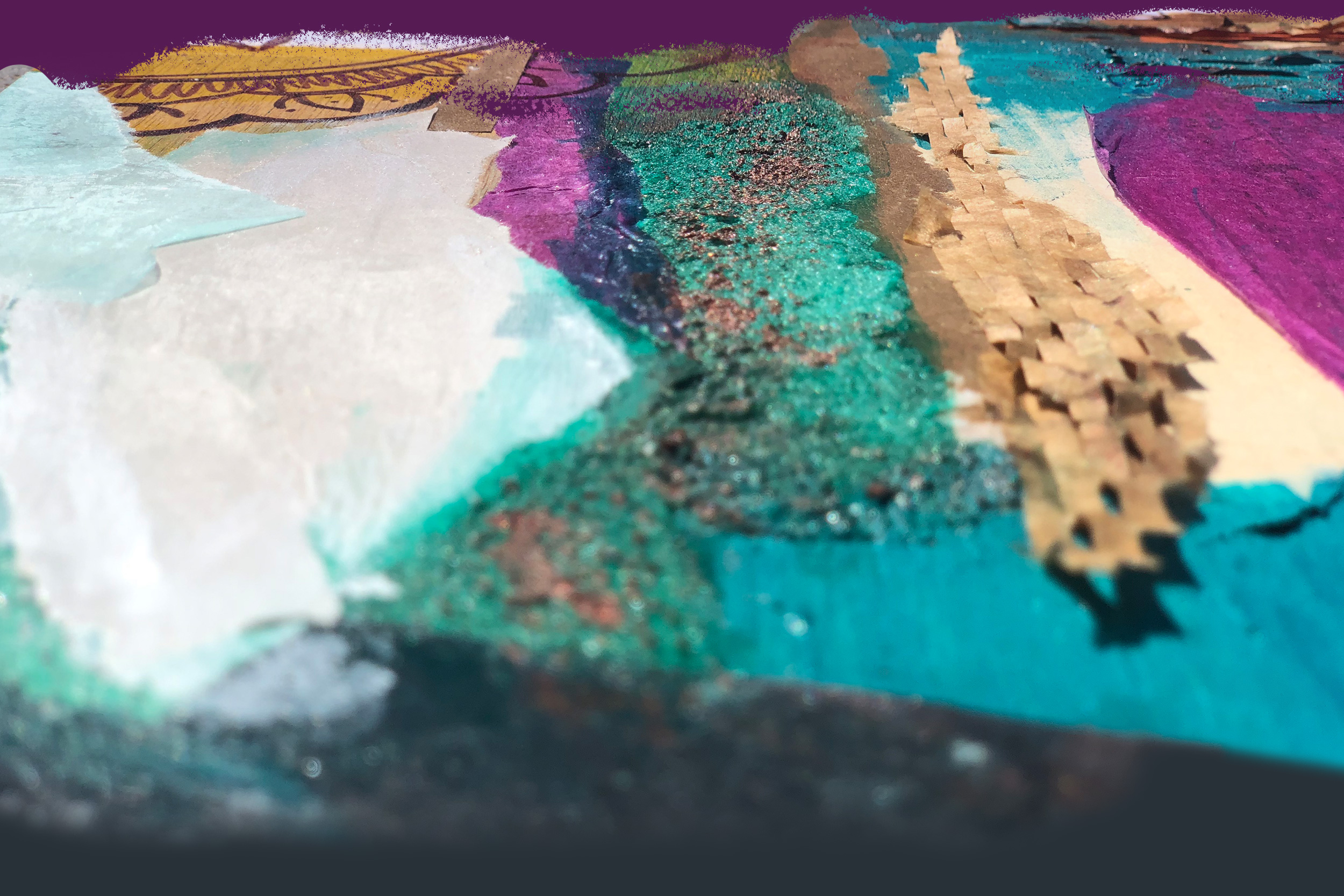
MY PARENTS MOVED TO Minnesota
FROM India IN THE EARLY 70s.
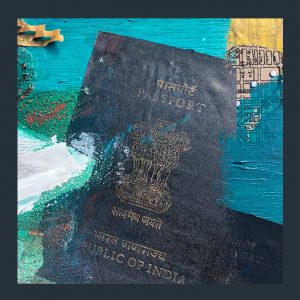
They raised my sister and me in a tight knit community of fellow Indian immigrants in the mostly white northern suburbs of the Twin Cities. The strength of our community provided the solidarity and support that we needed to survive and thrive in a new culture and new home. I’ve witnessed its lasting power in the past year as my parents and their friends have handled the ups and downs of COVID together.

Growing up in between these two worlds showed me the power and strength that came from being Indian and the way it contributed to who we were as both Minnesotans and Americans. I appreciate the way my parents balanced developing their American identity with resisting the demands this country makes to newcomers — to give up part of who they are.
My experience seeing my parents navigate that pressure to assimilate is maybe why I bristle at the current calls for unity coming from those at the top of our country’s established hierarchy — those who I perceive as having been the least harmed by our lack of unity and who may also have the least to lose from the process of becoming unified.

LIKE EVERYTHING IN OUR SOCIETY,
calls for unity are wrapped up in persistent race and class hierarchies, uneven distributions of power, and deep historic injustices. None of which should be ignored, undertheorized, or oversimplified for the sake of a pithy bumper sticker statement.

The divisions we face today are neither surfacy nor artificial. While historic, they are also fresh, they are deep, and they are open. For the past four years, appeals to nativism, racism, and xenophobia have been present every single day, stoking anxiety, resentment, and fear. And the impact of this was borne disproportionately by communities of color, immigrants, Muslims, and others who have been marginalized and oppressed in our country for decades and centuries.
It feels like we are asking these communities to leave their pain or trauma or lawsuits at the door in the name of “national unity,” whatever that means. And this is where I slow down, this is where I back up, this is where I turn around and run away from the calls for unity. It feels like an all too familiar erasure of our country’s oppressive past and present. It feels like we’re asking for full identification with and loyalty to a nation in which the basic structure of society remains deeply unjust and where the burdens of this injustice fall heavily and disproportionately on Black, Indigenous, and people of color and those who live at the intersections of race and gender identity and sexual orientation.
“It feels like an all too familiar erasure of our country’s oppressive past and present.”
Which is why I am not surprised, and I would argue neither should you be surprised, when members of these communities withhold allegiance to the nation or calls for unity and instead invest more in cultivating solidarity and mutual aid within their own communities as a matter of self-defense and survival. For whatever value “unity” holds for those who have been disenfranchised, I’d say “justice” holds far more.
No Justice. No Peace Unity.
NOW THAT’S A BUMPER STICKER
I CAN GET DOWN WITH.

Don’t get me wrong, I think ending division is a good goal, even if it is a less interesting bumper sticker. But I don’t think calling for unity is what gets us there. A serious commitment to unity requires a serious call and commitment to justice. Unity would be an outflow or byproduct of our country pursuing and achieving justice in visible and tangible ways.
True justice in America will require deep sacrifice, repair, and healing. There is no cost-free escape from a history of harm spanning generations, as Ta-Nehisi Coates writes in his article “The Case for Reparations.” But too often the calls for unity put the cost of that unity at the feet of those most harmed by our disunity.
“A serious commitment to unity requires a serious call and commitment to justice.”
So, what would the pursuit of unity through a serious commitment to justice look like? It starts by asking the question, “What would justice require?” and it flows from there. It would require us to tell better stories and build new narratives that push us to reckon with the reality and depth of our divisions, where they come from, who they impact, and why they persist. It would require addressing imbalances of power that exist at all levels of our society. And it would require new public policies, new practices, and new resources that work to close our nation’s many racial and economic divides.
Our aim might be unity, but our path requires justice.

contributors
